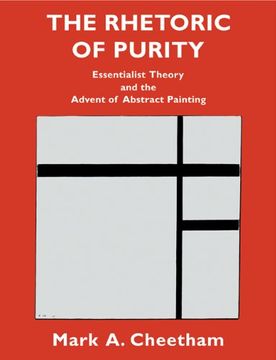Share
The Rhetoric of Purity: Essentialist Theory and the Advent of Abstract Painting (Cambridge Studies in new art History and Criticism) (in English)
Mark Cheetham (Author)
·
Cambridge University Press
· Paperback
The Rhetoric of Purity: Essentialist Theory and the Advent of Abstract Painting (Cambridge Studies in new art History and Criticism) (in English) - Mark Cheetham
$ 39.36
$ 43.99
You save: $ 4.63
Choose the list to add your product or create one New List
✓ Product added successfully to the Wishlist.
Go to My WishlistsIt will be shipped from our warehouse between
Monday, June 03 and
Tuesday, June 04.
You will receive it anywhere in United States between 1 and 3 business days after shipment.
Synopsis "The Rhetoric of Purity: Essentialist Theory and the Advent of Abstract Painting (Cambridge Studies in new art History and Criticism) (in English)"
In The Rhetoric of Purity, Mark Cheetham explores the historical and theoretical relations between early abstract painting in Europe and the notion of purity. For Gauguin, Serusier, Mondrian and Kandinsky - the pioneering abstractionists whose written and visual works Cheetham discusses in detail - purity is the crucial quality that painting must possess. Purity, however, was itself only a password for what Cheetham defines as an 'essentialist' philosophy inaugurated by Plato's vision of a perfect, non-mimetic art form and practised by the founders of abstraction. The essentialism of late nineteenth-century French discussion of 'abstraction', Cheetham argues, also infects the work of Mondrian and Kandinsky. These visions of abstraction are central to the development of Modernism and are closely tied to the philosophical traditions of Plato, Hegel and Schopenhauer. As a conclusion, Cheetham provides a postmodern reading of Klee's rejection of the rhetoric of purity and claims that Klee's refusal speaks to contemporary concerns in visual theory and culture. By acting as an antidote to the seductive appeal of purity in art and society, Cheetham's final critique of the trope of purity seeks to preserve the possibility of visual discourse itself.
- 0% (0)
- 0% (0)
- 0% (0)
- 0% (0)
- 0% (0)
All books in our catalog are Original.
The book is written in English.
The binding of this edition is Paperback.
✓ Producto agregado correctamente al carro, Ir a Pagar.

